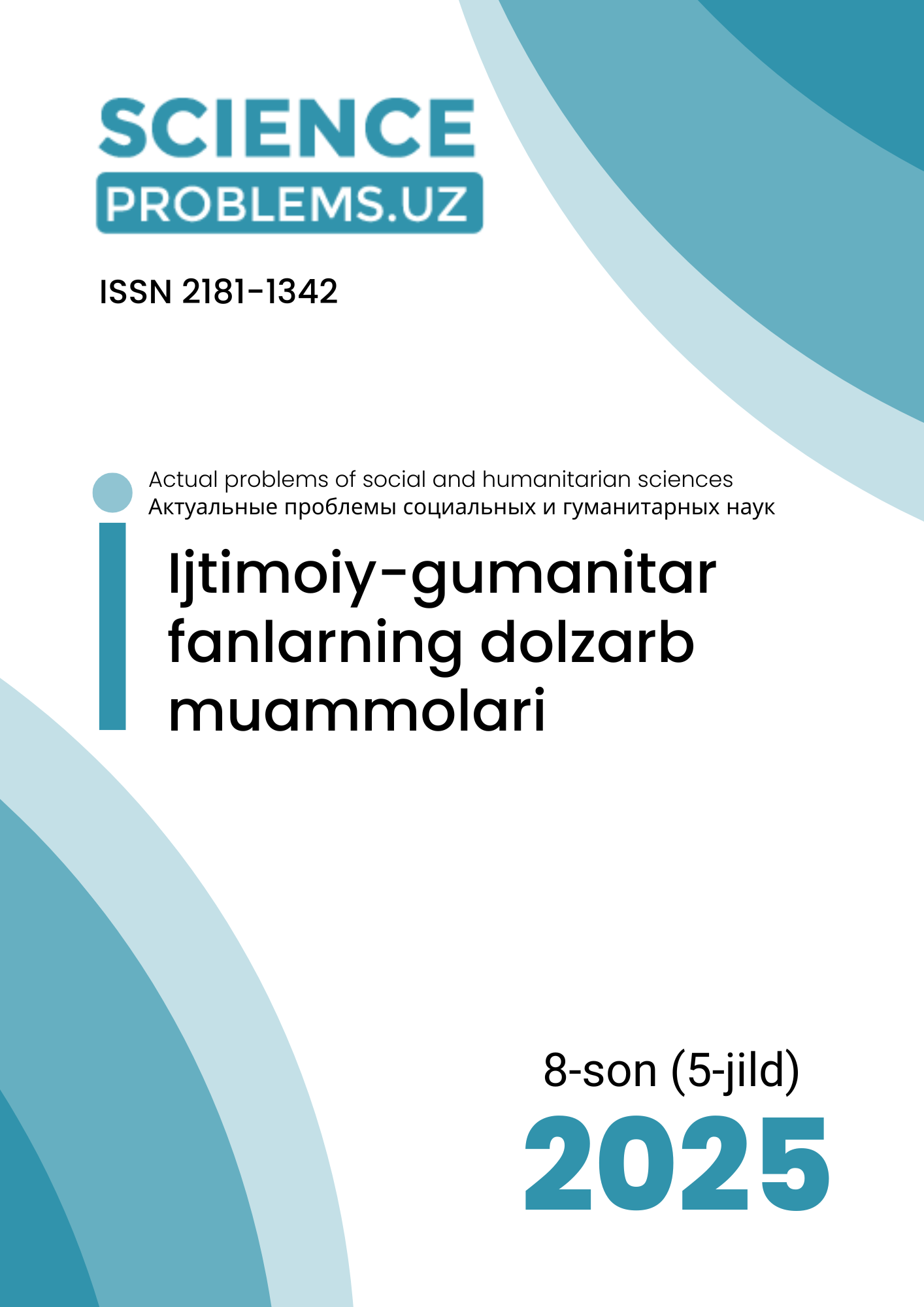SHAXS OTLARINING PRAGMATIK XUSUSIYATLARI
Kalit so'zlar
https://doi.org/10.47390/SPR1342V5I8Y2025N27Kalit so'zlar
tilshunoslik, pragmatika, shaxs otlari, ingliz tili, yondashuv, oʻzbek tili, pragmalingvistika.Annotasiya
Ushbu maqolada tilshunoslikning rivojlanishida shaxs otlari va uning pragmatik xususiyatlari borasida fikr mulohazalar yuritilgan. Pragmatikaning mustaqil soha sifatida tilshunoslikka kirib kelishi borasida bahs munozara yuritilgan. Pragmatika sohasining rivojlanishida tilshunos olimlarning yondashuvlari va uning ahamiyati borasida tahlillar berib oʻtilgandir.
Manbalar
1. Bar Hillel. Pragmatics of natural languages. Dordrecht, Holland: D.Reidel. 1971. P-231
2. Layons. J. Proceedings of the twelfth International Congress of Linguists, Vienna, August 28 - September 2, 1977
3. Kasher, A. 1998. ‘Postscript’, in A. Kasher (ed.), Pragmatics: critical concepts, London: Routledge, pp.144-54.
4. Chomsky, N. 1995. “Language and nature”. Mind 104 (413): p 1–61
5. Catts, S. V. (2002a). Disturbed communication in schizophrenia: the role of poor pragmatics and poor mind-reading. Psychol. Med. 32, P 1273–1284.
6. Schmidt, R., & Frota, S. (1986). Developing basic conversational ability in a second language: A case study of an adult learner of Portuguese. In R. Day (Ed.), Talking to learn: Conversation in second language acquisition. Rowley, MA: Newbury House, pp. 137-326.
7. Van Deyk, T.A. Язык. познание. коммуникация / T.A.Van Deyk. – B.: BGK im. I.A. Boduena de Kurtene, 2000. - 308 p.
8. Bakhtiyor Mengliyev, Guli Toirova, Javlon Ibragimov, and Munira Mengliyeva The necessity of Pareto principle in environmental studies. E3S Web of Conferences 587, 02018 (2024) GreenEnergy 2024 –P. 1-8. https://doi.org/10.1051/e3sconf/202458702018








